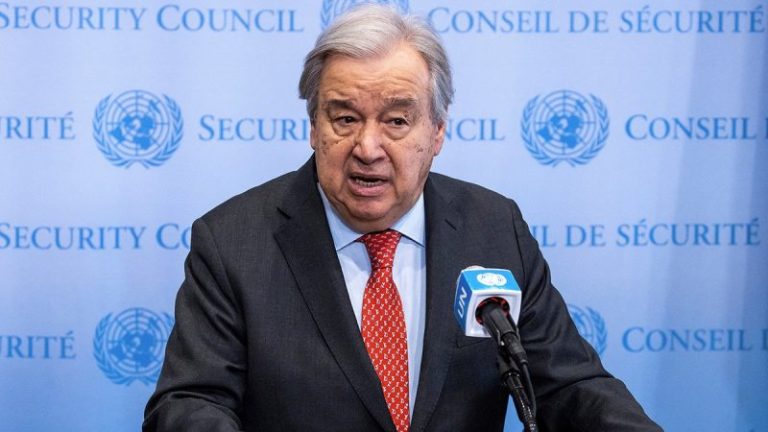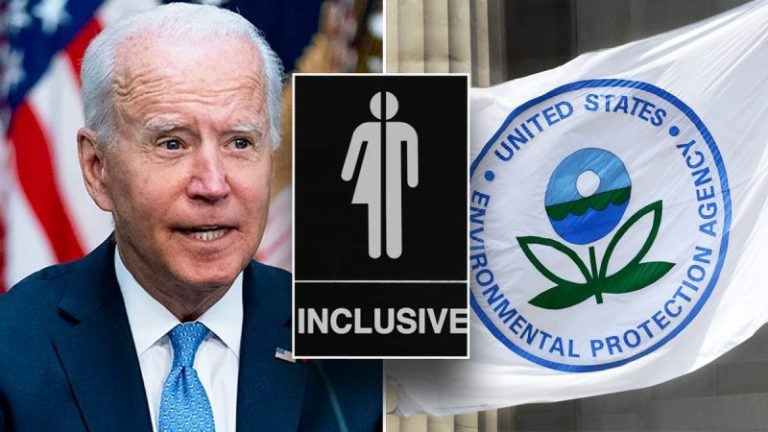The social media reactions are pouring in after President Donald Trump took the driver’s seat to support Elon Musk. Tesla’s stock rebounded Tuesday after facing a steep decline to start the week amid the ongoing protests at Tesla showrooms across the country.
While Tesla stocks rose, Democrats looked down at Trump’s latest charade – accusing him of running a Tesla ad at the White House.
‘I’m sure all the people losing their retirement, jobs, and health care because of Trump are glad to see the White House turned into a car dealership for the richest man on the planet,’ DNC Chair Ken Martin said in an X post.
Fox News’ Peter Doocy asked Trump about his message to Americans who are facing financial uncertainty and worried about their retirement accounts while the president was buying a new Tesla. Trump told Doocy he had to order foreign tariffs to boost the American economy.
‘Well, I think they’re going to do great. I think our country had to do this. We had to go and do this. They’ve taken away – other countries have taken away our business. They have taken away our jobs,’ Trump replied. ‘This economy, in my opinion, is going to blow it away.’
‘I have to do this. I have to get the workers back. I have to get the factories open. We have 90,000 factories and plants are closed… We’re taking it back. We’re taking our jobs back,’ Trump added.
Democrats, including Sen. Elizabeth Warren, D-Mass., were quick to oppose Trump’s Tesla photo op. ‘Grocery prices are soaring. Housing costs are skyrocketing. Retirement savings are plummeting. But Donald Trump thought today would be a good day to play car salesman,’ Warren said in a post.
‘Elon Musk just used taxpayer money to host a car sale at the White House after cutting funding for schools and preparing to fire 80,000 VA workers,’ the Democratic National Committee (DNC) posted.
‘Earlier today, while hard-working Americans were watching their retirement savings plummet, President Trump was filming a Tesla ad in front of the White House to help Elon Musk’s failing stock. This is a brazen conflict of interest and corruption in broad daylight,’ Democrats on the House Committee on Financial Services said.
The Democratic Congressional Campaign Committee (DCCC) posted a photo of Musk and Trump standing by the president’s new red Tesla, calling them the ‘most corrupt administration in American history.’
‘While Republicans were voting to take health care away from families and veterans, Donald Trump hosted a Tesla car show at the White House for his biggest donor. Peak corruption,’ House Whip Rep. Katherine Clark, D-Mass., said.
An image of Trump holding handwritten notes about the Tesla cars earned the ire of Democrats on social media. President Joe Biden was often mocked during his term for relying on note cards during press conferences and other public events.
‘After mocking President Biden for using note cards, Trump got caught red-handed today – holding his own notes on what to say about buying a Tesla, a car he clearly knows nothing about. So, is the media gonna make a big deal out of this? Or nah?’ Democratic political strategist Chris D. Jackson posted on X.
But Trump admitted he didn’t ‘need notes,’ making a jab at his predecessor.
‘Do you want my notes? They gave me notes. I’m not Biden. I don’t need notes,’ Trump told reporters before hopping in the driver seat of his new Tesla Model S. ‘You think Biden could get into that car? I don’t think so,’ Trump added.
Despite the criticism from the left, Musk is taking a victory lap. Musk posted a side-by-side photo of Biden snubbing Tesla at his electric vehicle summit in 2021 next to a photo of the Teslas parked in front of the White House on Tuesday.
Despite Tesla’s status as the leading manufacturer of electric vehicles in the United States, they were not invited to the White House event in 2021. White House press secretary Jen Psaki explained to reporters those invited were the ‘three largest employers of the United Auto Workers, so I’ll let you draw your own conclusions.’
Musk reposted a clip of CNN contributor Scott Jennings defending him to Abby Phillip on ‘CNN NewsNight.’
‘There’s a video of Joe Biden driving a Jeep around the South Lawn… It’s pretty common for the president to boost American industries… He obviously has a close relationship with Elon, who, by the way, is, I think, unfairly under attack and this company is unfairly under attack. You have these insane people all over the country chasing people down in their Teslas in New York City. I had a friend who tried to trade his Tesla in New York the other day, and there were protesters screaming at his children.’
Conservatives on social media were quick to defend Trump’s Tesla purchase on Tuesday, reminding liberals that Biden drove a hybrid Jeep Wrangler 4xe around the White House grounds to promote his EV initiative.
‘I don’t remember you being a Karen when Biden was a car salesman for Jeep,’ co-owner of Trending Politics Collin Rugg replied to Warren’s post.
‘Teslas are the #1 most American-made cars. Unlike GM, Ford, and Stellantis, every Tesla sold in America is built in America by American workers. Tesla’s Fremont factory in California is the single most productive auto plant in North America,’ EV journalist Sawyer Merritt said in a post.
‘I’m going to buy a brand new Tesla tomorrow morning as a show of confidence and support for Elon Musk, a truly great American,’ Trump announced late Monday night.
‘To Republicans, Conservatives, and all great Americans, Elon Musk is ‘putting it on the line’ in order to help our Nation, and he is doing a FANTASTIC JOB! But the Radical Left Lunatics, as they often do, are trying to illegally and collusively boycott Tesla, one of the World’s great automakers, and Elon’s ‘baby,’ in order to attack and do harm to Elon, and everything he stands for,’ Trump said on Truth Social.
Trump’s show of support for Musk comes on the heels of protests at Tesla showrooms across the country that have escalated to several instances of vandalism. The demonstrations began as protests against Elon Musk’s leadership of the Department of Government Efficiency (DOGE) which has led to massive federal workforce reductions and unveiled wasteful government spending.
‘It’s really terrible that there’s so much violence being perpetrated against people at Tesla, Tesla supporters, Tesla owners, Tesla stores. These are innocent people who have done nothing wrong,’ Musk told reporters on Tuesday.
‘Elon Musk is being attacked, and his companies are being targeted because he is fighting to put Americans first,’ Sen. Marsha Blackburn, R-Tenn., defended Musk in a post.
Rep. Marjorie Taylor Greene, R-Ga., and fellow Republican House members have called for investigations into the numerous vandalism cases against Tesla vehicles and charging stations across the country. Trump labeled the Tesla attacks ‘domestic terrorism.’
This post appeared first on FOX NEWS










